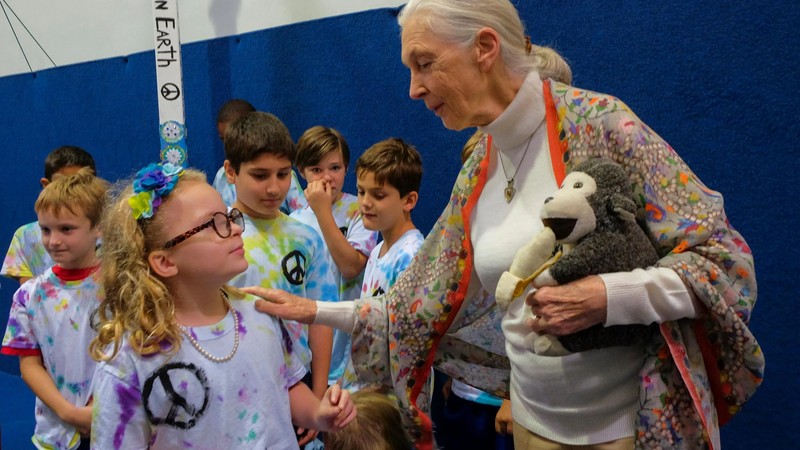Jane Goodall, the esteemed primatologist and conservationist, has passed away at the age of 91. Her death, announced by the Jane Goodall Institute, marks the end of an era for a woman whose groundbreaking work transformed our understanding of wildlife, particularly chimpanzees. Goodall’s exceptional observations in the field provided unparalleled insights into the lives of our closest living relatives and challenged longstanding beliefs about human uniqueness.
The path that led to Goodall’s monumental contributions to science began in an unlikely manner. Born on April 3, 1934, in London, she grew up in a household dominated by women, where her fascination with nature blossomed from a young age. Unable to pursue a formal education due to financial constraints, Goodall worked in various secretarial jobs until chance led her to Kenya at the age of 23. It was there that she met renowned paleoanthropologist Louis Leakey, who recognised her potential and invited her to observe chimpanzees in their natural habitat.
Under Leakey’s mentorship, Goodall embarked on a groundbreaking research project at Gombe Stream Reserve in Tanzania. With little formal training, she relied on her instincts and unfiltered observations to document chimpanzee behaviour. Her discoveries, including that chimps use tools and exhibit complex social behaviours such as aggression and affection, fundamentally challenged the perceptions of animal intelligence and behaviours, ultimately redefining what it means to be human.
Goodall’s first significant breakthrough came in 1960 when she observed a chimpanzee named David Greybeard using a blade of grass to extract termites from a mound. This seminal finding was published in the journal Nature in 1964, sending ripples through the scientific community. In response to her work, Leakey famously stated, “Now we must redefine ‘tool,’ redefine ‘man,’ or accept chimpanzees as humans.”
For nearly three decades, Goodall was a near-permanent fixture at Gombe, establishing a long-term research programme that has continued to inform primatology to this day. Throughout her career, she passionately advocated for the dwindling populations of chimpanzees and brought global attention to environmental issues threatening not just primates but ecosystems worldwide.
Goodall faced significant challenges as one of the few women in a male-dominated field. Despite her groundbreaking discoveries, many in the scientific realm initially dismissed her as sentimental for naming her research subjects. Nonetheless, she persisted, and her commitment to understanding chimpanzee behaviour and welfare persisted throughout her career.
Beyond her research, Goodall became a beacon of hope and activism. In 1986, at an international conservation conference, she transitioned from being a solitary researcher to an outspoken advocate for wildlife protection, leading the Jane Goodall Institute to initiate multiple community-based conservation initiatives. Her notable programme, Roots & Shoots, encourages young people to engage in activism for animals, the environment, and their communities.
Goodall’s dedication earned her numerous accolades, including being named a United Nations Messenger of Peace in 2002, being knighted in 2004, and receiving the Presidential Medal of Freedom in 2025. Her ability to connect with audiences worldwide through emotional narratives and compelling storytelling has inspired generations of young scientists and activists alike.
Throughout her life, even into her 80s, Goodall travelled extensively, advocating against practices such as deforestation and bushmeat hunting, imploring the world to reconsider how we interact with nature. “I’m just trying to change attitudes toward animals,” she once articulated, revealing her relentless ambition to create a better world.
Jane Goodall’s legacy is one of profound change and inspiration, merging science with heartfelt advocacy. As she leaves behind a world forever altered by her insights and activism, we recollect her wisdom and passion as vital to our understanding of life’s interconnectedness. Goodall’s transformative work has indeed left an indelible mark on both science and conservation, reinforcing her place as a towering figure in our quest to protect the planet.
